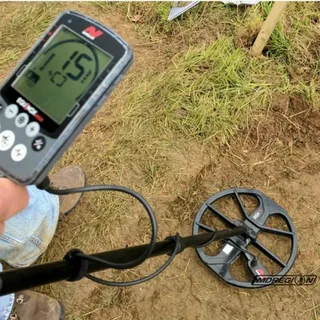American Mining Company Expands Operations in South America
The American mining company has recently announced its plans to expand its operations in South America. With a strong track record of success in the mining industry, the company aims to capitalize on the growing opportunities in the region. This expansion marks a strategic move for the company as it seeks to increase its presence and tap into the rich mineral resources that South America has to offer. In this article, we will delve into the details of this expansion and its potential impact on the mining industry in South America.
The American mining company has expanded its operations in South America by increasing its investment in mineral extraction and processing facilities. The company has acquired new mining concessions and leased additional land for exploration and development. This expansion is aimed at increasing the company’s presence in the region and tapping into the rich mineral resources that South America has to offer. The company’s move is expected to create more employment opportunities and economic growth in the areas where it operates.
The Role of American Mining Companies in Global Resource Extraction

American mining companies play a significant role in global resource extraction, as they are involved in the extraction of a wide variety of minerals and metals from around the world. These companies typically leverage their advanced technology, expertise, and financial resources to access and extract valuable resources in various regions, often in collaboration with local governments and companies. This involvement in global resource extraction allows American mining companies to contribute to the supply of essential raw materials for numerous industries, including construction, manufacturing, and technology. Additionally, their activities can have a substantial impact on local economies, employment, and environmental stewardship in the areas where they operate.
Sustainability Practices of American Mining Companies

American mining companies have made significant strides in incorporating sustainability practices into their operations. This includes efforts to reduce their environmental footprint through initiatives such as reclamation and remediation of mining sites, reducing water and energy usage, and implementing renewable energy solutions. In addition, many mining companies are working towards minimizing their impact on local communities and indigenous groups, as well as promoting ethical labor standards and safe working conditions for their employees. Some companies have also made commitments to transparency and accountability in their supply chains, particularly when it comes to the sourcing of minerals from conflict-affected or high-risk areas. Overall, sustainability has become a key focus for the American mining industry, with many companies recognizing the importance of responsible and ethical practices for their long-term viability.
American Mining Companies and Indigenous Land Rights

American mining companies often face conflicts with indigenous land rights, as many of the mines are located on land that indigenous communities consider to be their own. These communities often argue that the mining operations infringe on their rights to land, resources, and self-determination. In response, American mining companies have come under increasing pressure to respect indigenous land rights and to engage in meaningful consultation and consent processes with affected communities. This has led to a growing awareness of the need for companies to adopt more responsible and sustainable practices in their interactions with indigenous peoples.
Technological Innovations in American Mining Companies

Technological innovations in American mining companies have revolutionized the industry in recent years. One of the key advancements is the use of automation and robotics to improve safety and efficiency in mining operations. By implementing autonomous vehicles and drones, companies are able to access hard-to-reach areas and collect valuable data without putting human workers at risk.
In addition, the use of advanced data analytics and artificial intelligence has enabled companies to optimize their mining processes by identifying patterns and trends that were previously undetected. This has resulted in improved resource extraction and reduced operational costs.
Furthermore, mining companies have been exploring the use of virtual and augmented reality to train employees and simulate mining scenarios, leading to a better understanding of complex processes and safer working conditions.
Overall, technological innovations in American mining companies have played a crucial role in transforming the industry and are expected to continue driving forward improvements in the years to come.
Environmental Impact of American Mining Companies
American mining companies have had a significant environmental impact due to their extraction activities. Some of the key environmental concerns include deforestation, habitat destruction, water pollution, and air pollution. The use of heavy machinery and explosives in mining operations can lead to the disruption of natural habitats and ecosystems. Additionally, the discharge of mining waste and chemicals into water bodies can result in contamination and harm aquatic life. Furthermore, the emissions from mining activities contribute to air pollution, impacting both human health and the environment. These environmental impacts have led to increasing scrutiny and calls for more sustainable and responsible mining practices by American mining companies.
The Economic Impact of American Mining Companies
American mining companies have a significant economic impact on the country. These companies contribute to job creation, infrastructure development, and revenue generation for local, state, and federal governments. They also support a wide range of industries that rely on the raw materials extracted through mining. Additionally, mining companies invest in research and development, technological innovation, and environmental sustainability efforts to ensure the long-term viability of their operations. Overall, the economic impact of American mining companies extends far beyond their immediate activities, shaping the broader economic landscape of the United States.
Challenges Faced by American Mining Companies in Today’s Market
The challenges faced by American mining companies in today’s market include increased competition from global mining companies, fluctuating commodity prices, environmental regulations and permitting requirements, labor shortages, and rising production costs. Additionally, securing access to mineral-rich land and obtaining the necessary funding for large-scale mining operations are ongoing challenges. Political and social opposition to mining projects also present obstacles for American mining companies. Additionally, navigating complex and ever-changing tax and trade policies can pose significant challenges for these companies as well.
Regulatory Oversight of American Mining Companies
American mining companies are subject to regulatory oversight by several government agencies at the federal and state levels. The primary federal agency responsible for regulating mining activities is the Mine Safety and Health Administration (MSHA), which is part of the Department of Labor. MSHA sets and enforces safety and health standards for mining operations, conducts inspections, and investigates accidents and complaints.
In addition to MSHA, the Environmental Protection Agency (EPA) oversees compliance with environmental regulations, including air and water quality standards, waste management, and land reclamation requirements. The Bureau of Land Management (BLM) manages the use of public lands for mining and enforces regulations related to mineral exploration and extraction.
State regulatory agencies also play a significant role in overseeing mining operations, with each state having its own set of regulations and permitting requirements. These agencies address issues such as land use, water rights, reclamation, and environmental monitoring.
Overall, the regulatory oversight of American mining companies aims to ensure the safety of workers, protect the environment, and promote responsible resource extraction. Companies must comply with a variety of rules and requirements to obtain and maintain permits for mining activities. Non-compliance can result in penalties, fines, or even suspension of operations.
Corporate Social Responsibility Efforts of American Mining Companies
Many American mining companies have made significant efforts in recent years to improve their corporate social responsibility (CSR) practices. This includes addressing environmental concerns through sustainable mining practices, reducing the carbon footprint of their operations, and implementing community development programs to support local economies and residents. Additionally, many companies have adopted ethical labor practices and implemented health and safety measures to protect workers. Some companies have also made efforts to give back to communities through philanthropic initiatives and partnerships with local non-profit organizations. Overall, American mining companies are increasingly aware of the importance of CSR and are taking steps to mitigate their impact on the environment and contribute positively to the communities in which they operate.
The Future of American Mining Companies in a Changing World
See also: gold detector machine
The future of American mining companies in a changing world is uncertain and complex. With shifting geopolitical dynamics, evolving environmental regulations, and technological advancements, the mining industry in the United States is facing numerous challenges and opportunities.
One of the key factors influencing the future of American mining companies is the increasing demand for sustainable and responsible mining practices. As the global focus on environmental conservation and social responsibility grows, mining companies are under pressure to adhere to strict sustainability standards and reduce their environmental impact.
Furthermore, changes in global trade policies, commodity prices, and emerging markets are also shaping the future of American mining companies. The industry is intricately linked to international trade and market dynamics, and geopolitical developments such as trade tensions and tariffs can significantly impact the profitability and operations of mining companies.
Moreover, technological advancements such as automation, artificial intelligence, and data analytics are transforming the mining industry. These innovations have the potential to improve efficiency, safety, and productivity in mining operations, but they also pose challenges in terms of workforce displacement and the need for upskilling the labor force.
In conclusion, the future of American mining companies is influenced by a multitude of factors including sustainability demands, global trade dynamics, and technological advancements. Navigating these complexities will require mining companies to adapt, innovate, and collaborate with various stakeholders to ensure their long-term viability in a changing world.










